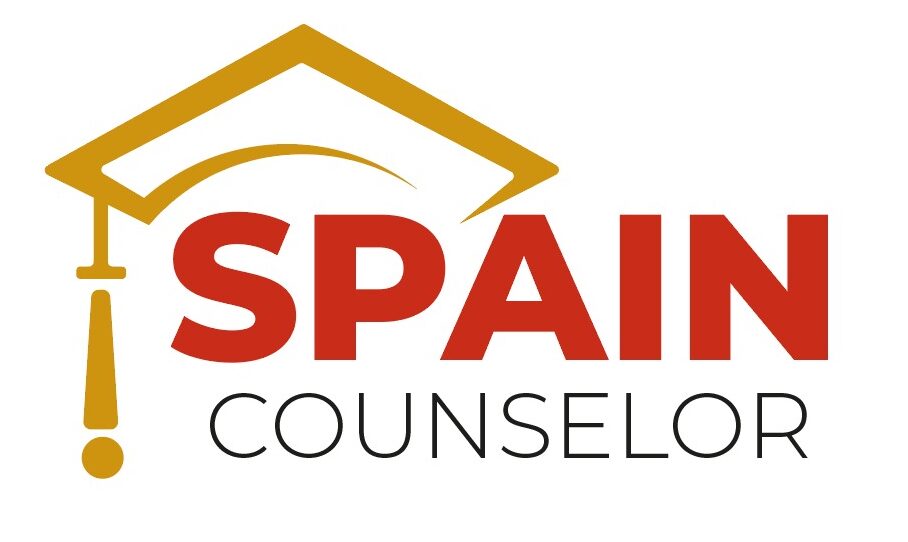
We guide your UNEDasiss accreditation and registration for the tests that are required to study in Spain.
UNEDasiss is a service that was created by the National University of Distance Education (UNED in Spanish and Spain’s largest public university) to facilitate the admission process for students coming from different international school systems to continue their studies at Spanish universities.
UNEDasiss accredits previously obtained diplomas and administers the admission exams that are required to start a specific degree.
Mission:
• Facilitate enrolment at Spanish universities for students from foreign educational systems by issuing accreditations and conducting specific competency tests.
• Fostering the internationalization of the Spanish Higher Education system by providing universities with a homogenous and systematic way of assessing not only academic records but also the skills and competencies obtained in foreign educational systems.
Through UNEDasiss, international students can obtain an accreditation which will enable them to seek enrolment in undergraduate studies at Spanish universities. The UNEDasiss accreditation is a digital document that all Spanish universities can request through our website. Those universities that have partnered with UNEDasiss will have direct access to our accreditation database.
Spain Counselor is an accredited UNED partner and is authorized to manage the admission process for international students who want to study their undergraduate degree at Spanish universities.
Requirements for undergraduate degrees at Spanish universities.
Spain has 87 universities, of which 50 are public and 37 are private. Since 2014, the Government established that the Universities have authority to set up the access criteria and admission procedures themselves (Royal Decree (412/2014).
The Ministry of Universities anticipates a reform in which it the admission test for Spanish universities will be homogenized by 2025 (Organic Law 3/2020, of December 29th)
Public universities.
You can enroll at a public university if you have finished your secondary education in your home country or the country you reside in. The admission criteria vary per university and the cut off marks vary per program.
If you want to apply, most of the public universities will require the homologation of degree to the Spanish equivalent. You can get this through UNEDasiss (Qualification for Admission “Calificación para la Admisión” – in spanish).
If you have not yet finished your studies, you can request a Provisional Accreditation. This Provisional Accreditation is accepted in most universities, however some exceptions do apply. There are university systems that require a student to have finished and homologized their high school diploma already. For example, in Catalonia, public universities require the homologation granted to assign spots in programs.
The maximum grade you will be able to obtain is 10 points, however, to access some programs a higher grade of up to 14 points is required. The cut-off mark is established by each university. To increase your admission score up to 4 additional points, you have 2 options:
1.- Registration to the Specific Competency Tests (PCE in Spanish) hosted by UNED at different examination centers abroad in the months of June and September. You can take a maximum of 6 subjects (see subjects offered) Some universities require a student to take History of Spain or Spanish Language and Literature.
These tests contain two types of questions, namely short/long-answer and multiple-choice questions. Short/long-answer questions must be answered in Spanish, and English translations are provided for multiple-choice questions.
Check the weighting notes (notas de ponderación – in Spanish) of each university to find out which subjects will increase your grade the most.
2.- Recognition of subjects: (Modalidad de Bachillerato – in spanish) only applicable to students that graduate with EU high school diplomas, or other diplomas that have been recognized via a reciprocal agreement (such as the IB diploma).
Students with studies of curricula outside the European Union must also request the definitive homologation of their high school diploma via the Spanish Ministry of Education. It takes between 3/6 months.
Some universities do not require a cut-off mark or tests for students with a good academic record or with EU high school curriculums or other diplomas that have been recognized by a reciprocal agreement (such as IB). If you have doubts, please ask us what will apply in your case.
Private universities. Institutional Admission Test.
Private universities have their own institutional admission tests. These admission tests can sometimes replace or complement specific language and or competency tests required by universities. In general, these assessments can be taken online and are hosted directly by the university or a partner. Sometimes however, for some scholarships or specific programs, students will have to pass a provisional accreditation or a conversion to the Spanish grading system.
Just like at public universities, in order to enroll you will need the UNEDasiss Accreditation or to request the Homologation of your foreign studies to the Spanish Bachelor’s Degree (Volante de Admision Condicional – in spanish) +info

Admission Process for Undergraduate students in Spain.
Admission Criteria
The admission criteria are the prerequisites needed to enter different undergraduate degrees at Spanish universities. These criteria differ per university and per program. Necessary documents can be the diploma, transcripts, and applicable admission tests. Deadlines and the cut-off grades depend on the program or university concerned.
UNEDassis Accreditation
Please note that not all universities accept this UNEDAssis accreditation as admission requirements or for specific studies.
Provisional Accreditation
• Students who are in the process of having their high school education certifications in the process of accreditation (referred to often as the homologation process).
• Students from the United Kingdom and Irish educational systems who apply with their predicted grades.
Admission Score for Spanish Universities - Cut-of mark
Cut-off mark:
This is the minimum grade to be admitted into a specific program. They differ per program and can provide guidance to see if your application will be successful. They are published each year and students can find previous cut-off marks as a reference. This way they can see what admission scores are required for a certain program and can assess if the student has a chance to be admissible. Your admission score is determined by the universities and is based on their admission criteria, but also your UNEDasiss admission score, Specific Competency Test scores, accredited subjects taken in high school etc.
Registration to the PCE (Specific Competency Tests - PCE in Spanish)
Important dates: https://unedasiss.uned.es/fechas_clave
Subjects offered: https://unedasiss.uned.es/oferta_asignaturas
Students graduating from European high schools or other internationally recognized degrees (like IB) are exempted from the PCE requirements. In case you have any questions or want to know if you need to take a PCE, please contact us.
Recognition of subjects
UNEDasiss High School Profiles
UNEDasiss Language Accreditation
These can only be accredited if the concerned entities, languages and levels of education are recognized by the Spanish Association of Language Centers in Higher Education (ACLES in Spanish).
